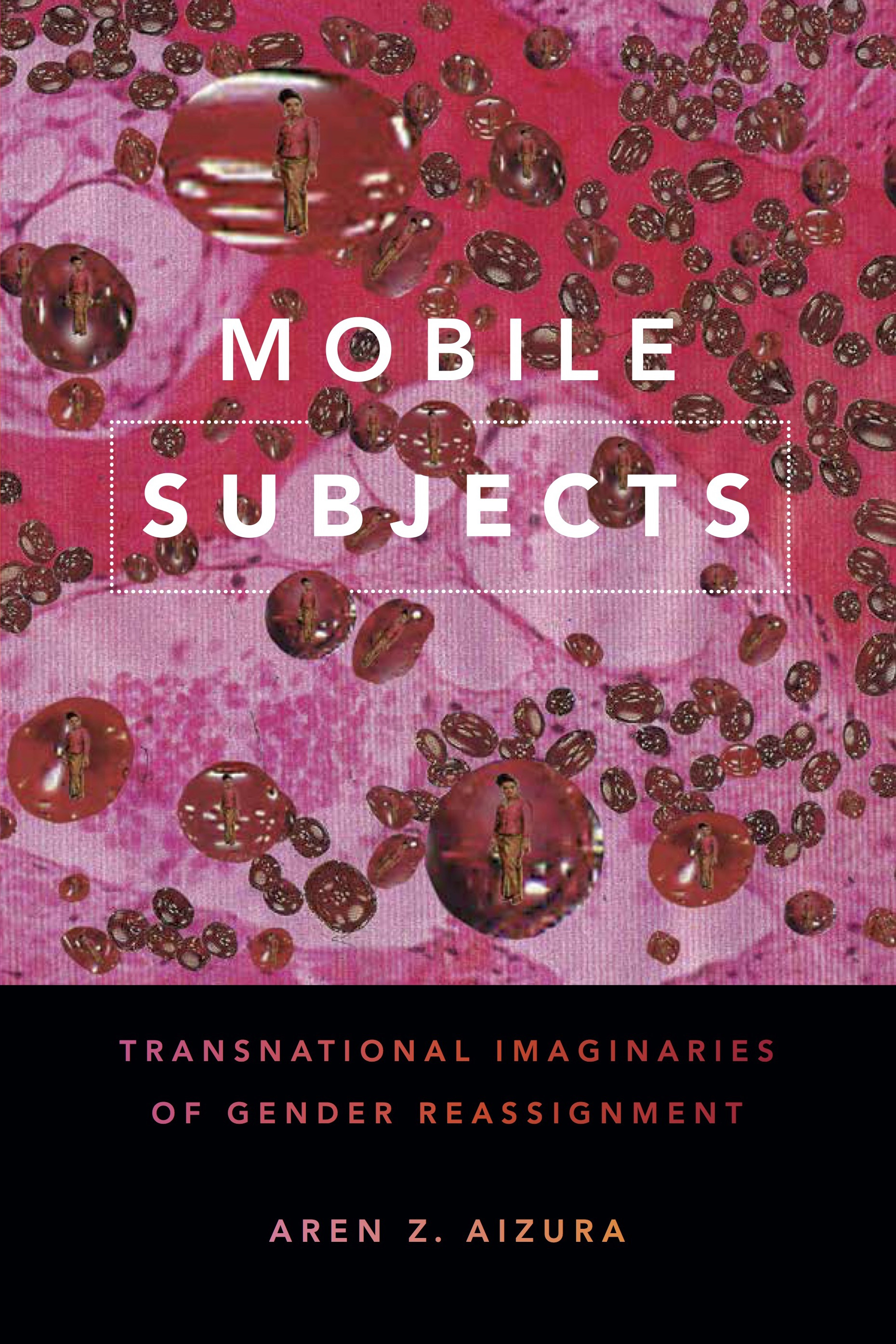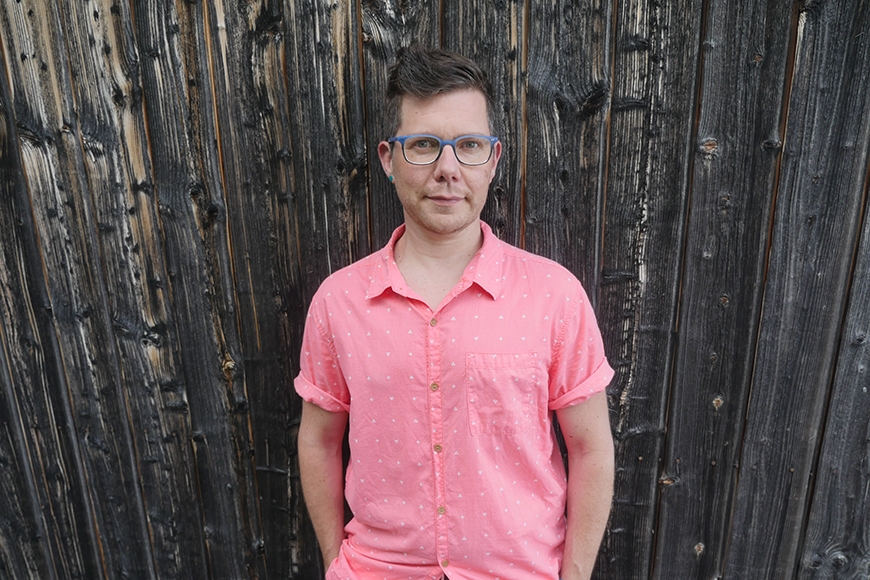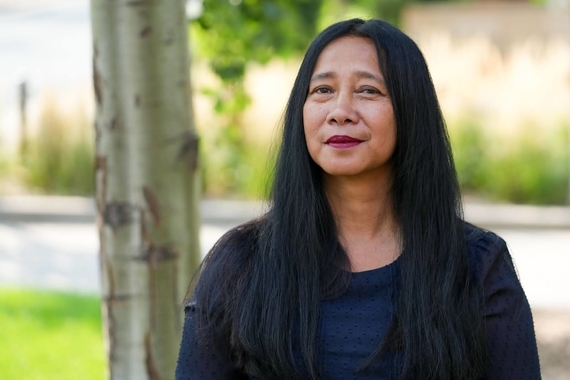Aren Aizura on Mobile Subjects: Transnational Imaginaries of Gender Reassignment
Aren Aizura is an associate professor in the Department of Gender, Women & Sexuality Studies. He brings expertise in queer theory, transgender studies, transnationality and immigration, and political economy and labor. Aizura discusses his new book, Mobile Subjects: Transnational Imaginaries of Gender Reassignment, and how racial dynamics and economic issues are central to gender and gender reassignment.
Where are you from and what brought you to the University of Minnesota?
I grew up in Melbourne, Australia, and I've lived in the United States for ten years. I came to the Department of Gender, Women & Sexuality Studies because I admired the department from afar; I especially appreciate how faculty here do transnational feminist studies and how receptive this department is to trans people doing research.
All the different parts of my research—science and technology studies, transgender studies, transnational studies, studies of economies—are welcomed here. The University itself is huge and I love the cross-collaboration across fields and departments that’s possible here. I especially appreciate the solidarity of the Race, Indigeneity, Gender & Sexuality Studies Initiative (RIGS), which brings together faculty and students working on issues of race, indigenous studies, colonialism, gender, and sexuality.
What drew you to this field?
Before graduate school, I was involved in anti-capitalist political movements in Australia, as well as a movement to close immigrant detention centers. I also identified as queer and trans and was involved in trans support networks and health advocacy. I saw that sometimes trans claims for recognition in medicine and society at large were quite conservative: the most visible trans people claiming rights were white, middle-class, and asking for inclusion into “respectable” society; they often didn’t connect their struggles with other struggles for justice.
In part, medicine created the conditions for that situation, by only treating white, middle-class, and “respectable” people as valid candidates for gender reassignment surgery and hormones. Medicine has a history of pathologizing trans people: treating us as mentally ill or untrustworthy narrators of our experience. This means that medical treatment is sometimes not about care but testing, and that creates a lot of trauma and distrust. So it’s important to counter those narratives of pathologization and fight for gender self-determination: the right to identify as who we are. That struggle drew me to transgender studies.
But the struggle for gender self-determination is bigger than just medical depathologization or access to body modification for trans people. There are many others who experience transphobic violence and stigma and who experience other forms of injustice too, which compound that violence. Black trans people and trans people of color are particularly subject to violence, as are poor people or people otherwise thought of as outside of society: sex workers, disabled people, and houseless people, among others. When a person is already marginalized, being visible as a trans person can make them vulnerable to profiling by police, higher rates of incarceration, and higher rates of violence, whether from strangers or in families or in the home. This means that just studying transgender identity by itself is not enough. We have to look at broader social structures like capitalism and the history of race and criminalization to understand how to change the world for all trans and queer people.
Can you tell us about your new book, Mobile Subjects: Transnational Imaginaries of Gender Reassignment?
Historically, trans people in the global north have needed to travel away from their homes to obtain healthcare, particularly body-modifying surgeries in “exotic” locations such as Morocco, Mexico, and Thailand. The book documents why trans people may not be able to access adequate healthcare where they live.
I also show how the means through which trans healthcare is available relies on capitalism: access is limited to those who can pay. Also, histories of colonialism and racist imperialism shape encounters between the relatively affluent trans clients at trans surgery clinics and the care workers in those clinics, who are often people of color. I argue that trans culture and politics need to take account of its own whiteness and reliance on capitalist circuits.
What was your research process like?
Stories about transgender travel occur in multiple realms, so my research was interdisciplinary. My research method involved what I call "following the actors": if they wrote autobiographies about their experience, I did literary analysis. If films featured that experience, I wrote about films and used cinema studies as an analytic tool.
My biggest research task was undertaking ethnographic fieldwork in Thailand, doing participant observation in hospitals and interviewing trans people who were obtaining trans surgeries there, as well as interviewing surgeons, nurses, and other workers. I learned a lot by observing, interviewing, and taking copious field notes and photographs.

How has your work evolved over time?
My work has evolved a lot since emigrating from Australia to the United States. Feminist and queer studies look very different in Australia. Partly this is because when I was in graduate school, Australian queer and feminist theory was dominated by whiteness. But it's also because Australian culture also has a different settler-colonial history; it's easy to study Indigenous history in Australia because of its genocidal past, but more difficult to learn about racial formations across the entire world.
Living in the United States, I realized I needed to study Black feminisms and Black studies because the history of the slave trade and resistance to it through Black radical traditions are so important to political movements in the US and global Black diasporas.
I'm also currently interested in trans involvement in political movements and cultures that aren't specifically about trans or queerness, such as sex-work activism. The criminalization of sex work affects many queer and trans people who engage in sex work, yet often those two movements are seen as very different. Right now I'm working on a research project to trace how transnational queer and trans friendships and collaborations have influenced sex work activism and vice versa.
Can you explain the meaning behind your book’s cover art?
The cover art is by Skowmon Hastanan, a Thai feminist artist who lives in New York. It's called "Rubyscape" from the series Migration Les femmes en route. Hastanan drew the images of Thai women from Thai postage stamps, which she places inside bubbles or tear-drop diamond shapes. The series maps global labor markets in which Asian women are seen as "caring" but also cheap to hire. I wanted to feature a politically engaged artist on the cover and I also wanted to highlight how transgender and queer lives in the global north rely on care labor from people who are not valued as socially important because of their race or ethnicity.
What do you hope Mobile Subjects will accomplish?
I hope that readers will learn that claiming trans recognition or rights is not enough as long as we don’t look at how transgender identity is made possible through racial and imperial logics. Mobile Subjects joins a growing tradition of transgender studies research that advocates for a trans and queer world that is anti-capitalist, feminist, and that actively opposes white supremacy. In this political climate, that feels like important work to do.
This story was written by an undergraduate student.



